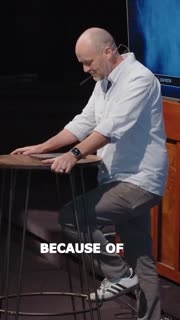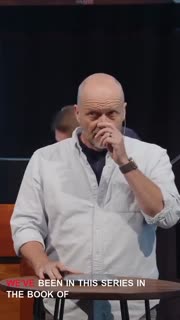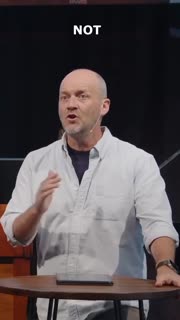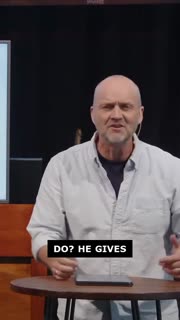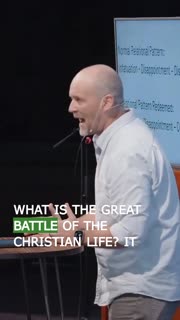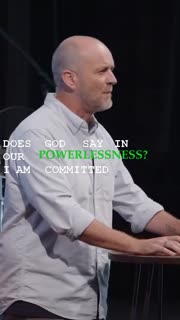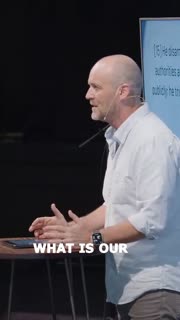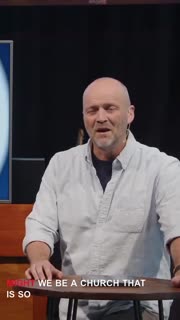Hope and Healing Through God's Promises
Summary
### Summary
Today, we gathered to reflect on the gospel in light of Truth and Reconciliation Sunday. We began by acknowledging Jesus as the creator and sustainer, the source of mercy and justice. We confessed our collective guilt and the privileges some of us have received at the expense of others. We prayed for the oppressed, particularly the indigenous people affected by historical injustices, asking for God's power to bring healing and reconciliation. We also repented of our own subtle forms of racism and protectionism, seeking a posture of grace and mercy.
We then turned to the story of Moses in the book of Exodus, drawing parallels between the Israelites' oppression and our own struggles with past traumas and systemic injustices. Moses' journey from a life of denial to becoming God's instrument of liberation serves as a powerful reminder that God often calls us out of our comfort zones to confront difficult truths. We discussed how trauma affects us physically and emotionally, and how revisiting painful pasts can be a path to healing rather than a source of further pain.
The story of Moses and Aaron confronting Pharaoh illustrates the battle between hope and oppression. Pharaoh's refusal to let the Israelites go and his subsequent increase in their labor symbolizes the forces that seek to keep us in bondage. Yet, God's promises remain steadfast. Despite the Israelites' initial hope turning into greater suffering, God reassures them of His covenant and commitment to their freedom.
We explored the concept of hope, emphasizing that it must be rooted in God's promises rather than our circumstances. The Israelites' struggle to believe in God's promises amidst their suffering mirrors our own challenges in maintaining faith during difficult times. However, the gospel provides us with a foundation of hope through the life, death, and resurrection of Jesus Christ. This hope is not based on our ability to change our circumstances but on God's unchanging nature and His covenant with us.
Finally, we turned to the New Testament, where Paul in Colossians reminds us of the fullness of God's nature in Christ and the victory already won through the cross. This victory disarms all powers that seek to oppress us, giving us the authority to speak truth and live in freedom. We concluded with a prayer, asking God to help our unbelief and to open our eyes to the spiritual realities of His promises.
### Key Takeaways
1. The Gospel and Reconciliation: The gospel allows us to acknowledge our collective guilt and privileges, enabling us to hear hard truths without defensiveness. It calls us to lament rather than debate, fostering a posture of grace and mercy that opens doors for dialogue and reconciliation. [30:39]
2. Facing Past Traumas: Revisiting past traumas is essential for healing. Denial only perpetuates dysfunction, while confronting our past allows God to work in our midst. Moses' story teaches us that God often calls us out of our comfort zones to address unresolved issues, leading to true liberation. [35:40]
3. Hope Amidst Oppression: The battle between hope and oppression is ongoing. Pharaoh's increased labor on the Israelites symbolizes the forces that seek to keep us in bondage. Yet, God's promises remain steadfast, and our hope must be rooted in His covenant rather than our circumstances. [42:55]
4. The Power of God's Promises: God's promises are the foundation of our hope. Despite the Israelites' broken spirits and hard labor, God reassures them of His covenant. Our faith must be based on God's unchanging nature and His commitment to our freedom, not on our ability to change our circumstances. [49:51]
5. Victory Through Christ: The New Testament reminds us of the victory already won through the cross. This victory disarms all powers that seek to oppress us, giving us the authority to speak truth and live in freedom. Our hope is built on the gospel, which is an announcement of a victory already won. [01:00:43]
### YouTube Chapters
[0:00] - Welcome
[30:07] - Opening Prayer
[30:39] - Confession and Lament
[31:09] - Prayers for the Oppressed
[32:11] - Longing for God's Kingdom
[32:41] - Announcements
[33:10] - The Gospel and Society
[34:42] - Revisiting Past Traumas
[35:40] - The Impact of Trauma
[36:44] - Moses' Journey
[37:44] - God's Call to Moses
[39:21] - Moses and Aaron's Mission
[40:52] - The Power of Good News
[42:24] - Pharaoh's Response
[44:42] - The Reality of Powerlessness
[46:09] - Emotional Triggers
[49:51] - God's Promises Reaffirmed
[52:59] - The Struggle to Believe
[54:31] - Relational Patterns and Covenant
[56:16] - The Battle of Faith
[57:55] - The Gospel's Victory
[59:20] - Colossians and Our Identity in Christ
[01:02:24] - The Unchanging Gospel
[01:06:07] - Closing Prayer and Worship
Study Guide
### Bible Reading
1. Exodus 4:28-31 - "Moses told Aaron everything the Lord had sent him to say and about all the signs he commanded him to do. Then Moses and Aaron went and assembled all the elders of the Israelites. Aaron repeated everything the Lord had said to Moses and performed the signs before the people. The people believed, and when they heard that the Lord had paid attention to them and that he had seen their misery, they knelt low and worshipped."
2. Exodus 5:1-2 - "Later, Moses and Aaron went in and said to Pharaoh, 'This is what the Lord, the God of Israel, says: Let my people go so that they may hold a festival for me in the wilderness.' But Pharaoh responded, 'Who is the Lord that I should obey him by letting Israel go? I don’t know the Lord, and besides, I will not let Israel go.'"
3. Colossians 2:9-15 - "For the entire fullness of God’s nature dwells bodily in Christ, and you have been filled by him who is the head over every ruler and authority. You were also circumcised in him with a circumcision not done with hands, by putting off the body of flesh, in the circumcision of Christ, when you were buried with him in baptism, in which you were also raised with him through faith in the working of God, who raised him from the dead. And when you were dead in trespasses and in the uncircumcision of your flesh, he made you alive with him and forgave us all our trespasses. He erased the certificate of debt with its obligations that was against us and opposed to us, and has taken it away by nailing it to the cross. He disarmed the rulers and authorities and disgraced them publicly; he triumphed over them in him."
### Observation Questions
1. What was the initial reaction of the Israelites when Moses and Aaron shared God's message and performed signs? ([40:21])
2. How did Pharaoh respond to Moses and Aaron's request to let the Israelites go? ([42:24])
3. According to Colossians 2:9-15, what has Christ accomplished for believers through His death and resurrection?
### Interpretation Questions
1. Why do you think the Israelites' initial hope turned into greater suffering after Pharaoh's response? ([42:55])
2. How does the story of Moses and Aaron confronting Pharaoh illustrate the battle between hope and oppression? ([42:24])
3. In what ways does Colossians 2:9-15 describe the victory believers have in Christ? How does this victory impact our daily lives?
### Application Questions
1. Reflect on a time when you felt hopeful only to face greater challenges afterward. How did you respond, and what did you learn from that experience? ([42:55])
2. The sermon mentioned that revisiting past traumas is essential for healing. Is there a past trauma you have been avoiding? What steps can you take to confront it with God's help? ([35:40])
3. How can you root your hope in God's promises rather than your circumstances, especially during difficult times? ([49:51])
4. The sermon emphasized the importance of lamenting rather than debating when faced with hard truths. How can you practice this in your interactions with others, particularly those who have been oppressed? ([30:39])
5. In what ways can you speak truth and live in freedom, knowing that Christ has disarmed all powers that seek to oppress you? ([01:00:43])
6. How can you cultivate a posture of grace and mercy in your daily life to foster dialogue and reconciliation? ([31:37])
7. Identify one area in your life where you need to trust in God's unchanging nature and His covenant with you. What practical steps can you take this week to strengthen your faith in this area? ([49:51])
Devotional
Day 1: The Gospel and Reconciliation
Theme: The gospel fosters grace and mercy for reconciliation.
Description: The gospel provides a framework for acknowledging our collective guilt and privileges, allowing us to hear hard truths without becoming defensive. It calls us to lament rather than debate, fostering a posture of grace and mercy that opens doors for dialogue and reconciliation. This is particularly important in the context of historical injustices, such as those faced by indigenous people. By confessing our sins and privileges, we can begin to dismantle the systemic injustices that have perpetuated suffering and division.
In this light, the gospel is not just a message of personal salvation but also a call to social justice and communal healing. It challenges us to move beyond our comfort zones and engage in the difficult work of reconciliation. This involves listening to the stories of the oppressed, acknowledging our own complicity, and taking concrete steps towards justice and healing. [30:39]
Bible Passage: "Therefore, confess your sins to one another and pray for one another, that you may be healed. The prayer of a righteous person has great power as it is working." (James 5:16, ESV)
Reflection: Think of a group or community that has been historically oppressed. How can you, in your own capacity, contribute to their healing and reconciliation today?
Day 2: Facing Past Traumas
Theme: Confronting past traumas leads to true liberation.
Description: Revisiting past traumas is essential for healing. Denial only perpetuates dysfunction, while confronting our past allows God to work in our midst. The story of Moses teaches us that God often calls us out of our comfort zones to address unresolved issues, leading to true liberation. Moses' journey from a life of denial to becoming God's instrument of liberation serves as a powerful reminder that God often calls us out of our comfort zones to confront difficult truths.
Trauma affects us physically and emotionally, and revisiting painful pasts can be a path to healing rather than a source of further pain. By facing our traumas, we allow God to bring about true healing and transformation in our lives. This process may be uncomfortable and challenging, but it is necessary for our spiritual growth and freedom. [35:40]
Bible Passage: "He heals the brokenhearted and binds up their wounds." (Psalm 147:3, ESV)
Reflection: What past trauma or unresolved issue have you been avoiding? How can you invite God into that space for healing today?
Day 3: Hope Amidst Oppression
Theme: Root your hope in God's promises, not circumstances.
Description: The battle between hope and oppression is ongoing. Pharaoh's increased labor on the Israelites symbolizes the forces that seek to keep us in bondage. Yet, God's promises remain steadfast, and our hope must be rooted in His covenant rather than our circumstances. The Israelites' struggle to believe in God's promises amidst their suffering mirrors our own challenges in maintaining faith during difficult times.
Despite the Israelites' initial hope turning into greater suffering, God reassures them of His covenant and commitment to their freedom. This teaches us that our hope should not be based on our ability to change our circumstances but on God's unchanging nature and His covenant with us. By focusing on God's promises, we can find strength and hope even in the midst of oppression and suffering. [42:55]
Bible Passage: "For I know the plans I have for you, declares the Lord, plans for welfare and not for evil, to give you a future and a hope." (Jeremiah 29:11, ESV)
Reflection: In what area of your life are you struggling to maintain hope? How can you remind yourself of God's promises in that situation today?
Day 4: The Power of God's Promises
Theme: God's unchanging nature is the foundation of our hope.
Description: God's promises are the foundation of our hope. Despite the Israelites' broken spirits and hard labor, God reassures them of His covenant. Our faith must be based on God's unchanging nature and His commitment to our freedom, not on our ability to change our circumstances. This is a crucial lesson for us as we navigate the challenges and uncertainties of life.
The gospel provides us with a foundation of hope through the life, death, and resurrection of Jesus Christ. This hope is not based on our ability to change our circumstances but on God's unchanging nature and His covenant with us. By focusing on God's promises, we can find strength and hope even in the midst of oppression and suffering. [49:51]
Bible Passage: "Let us hold fast the confession of our hope without wavering, for he who promised is faithful." (Hebrews 10:23, ESV)
Reflection: What specific promise of God can you hold onto today to strengthen your faith and hope?
Day 5: Victory Through Christ
Theme: Christ's victory disarms all powers of oppression.
Description: The New Testament reminds us of the victory already won through the cross. This victory disarms all powers that seek to oppress us, giving us the authority to speak truth and live in freedom. Our hope is built on the gospel, which is an announcement of a victory already won. This victory through Christ empowers us to live in freedom and truth, no longer bound by the forces of oppression and sin.
Paul in Colossians reminds us of the fullness of God's nature in Christ and the victory already won through the cross. This victory disarms all powers that seek to oppress us, giving us the authority to speak truth and live in freedom. By embracing this victory, we can live confidently and boldly, knowing that we are more than conquerors through Christ. [01:00:43]
Bible Passage: "He disarmed the rulers and authorities and put them to open shame, by triumphing over them in him." (Colossians 2:15, ESV)
Reflection: How can you live out the victory of Christ in your daily life? What steps can you take to speak truth and live in freedom today?
Quotes
1. "Because of Jesus, who is the victim of injustice so that we can be received, be the recipients of grace. The gospel we believe allows us, Lord, to acknowledge that each of us is guilty of self-protection and that that has affected others. The gospel allows us to accept that many of us have received privileges from a society that has also oppressed others. The gospel allows us to hear truth without needing to defend ourselves from it. So we ask, Lord, that you would continue to give us the faith to listen to hard things and choose to lament instead, instead of debate." [30:07] (32 seconds)
2. "We've been in this series in the book of Exodus where we have been considering the pattern of God's redemption to liberate and oppress people whose slavery was generations in the making. And it's a powerful reminder that history is cyclical that the problems that exist in the world are sinful and that because of sin people are natural enemies. We've explored this and considered this story that happened in history we do so with the gospel informing it. See the gospel allows us to acknowledge that people are sinners and that that affects society that we can acknowledge that sin is the problem in the world while also not feeling powerful in the midst of it all. The gospel allows us to do that." [32:41] (52 seconds)
3. "I think to not engage the past is to limit the power of God in our midst to live in denial to live detached is to say to God you just be God and I'm going to live my life God doesn't work like that remember Moses remember Moses a big part of this Exodus story about him about a month ago had a good normal life after he had murdered somebody and had to flee his family he created and carved out a life where he had a a job where he had a family where he had property he had a place until God came and interrupted his normal but it's important for us to see that his normal was shaped by things that were not normal that he was living in denial that when he ran away from Egypt he was running away from his true self that he was living divided that he was isolated from his home and his community that he was living defensive he was resistant to change and he chose to be more self-reliant and protect himself and guard that normal God doesn't let him use him to declare his work to the people who are still oppressed." [36:11] (93 seconds)
4. "What does God do? He gives more promises. In Exodus 6, we hear him repeat these things. I am the Lord. I've established my covenant. I've remembered my covenant. I'm the Lord. I will bring you out. I will deliver you from slavery. I will redeem you. I will take you home. I will take you to be my people. I will be your God. I am the Lord. He doesn't do anything. He doesn't like, okay, yeah, no, I probably should do something about this. What does he do? He says, listen, you need to believe. Your hope has to be based on the promise before the power. You have to believe it because it is essential to understand my true nature, God is saying. When God says, I make a covenant to you, he is basically making a covenant with himself that his words will never be reneged upon. God cannot renege on a covenant because it wouldn't be true to who he is. And so he commits to them again. He says, I am with you. I've established this covenant. I've made this promise. I will do all of these things. You need to believe." [49:51] (66 seconds)
5. "What is the great battle of the Christian life? It is not doing the right things. It is believing the truth. The truth about what? The truth about the gospel, which is God's covenant in action. That's the evidence of our hope. The words of truth that Jesus came to earth, lived a sinless life, died on the cross to pay the penalty for my sin. And I know that's the evidence of our hope. And I know that's the evidence and rose victorious to show us, to show me, to show you that he has the power over sin. At the cross, he took away the penalty. At the resurrection, he shows us that he takes away the power so that we can live in what? Hope. How? By faith. Hope only comes by faith. Hope is not objective. It is built around this idea that I've got to trust that God loves me, especially when I don't feel it. Especially when things get harder. Especially when I am confronted by those lies. Our faith and our hope is built around what God has already done on our behalf." [56:16] (70 seconds)
6. "What does God say in our powerlessness? I am committed to you. The cross is the picture of it. I want you to go to Colossians, and we'll kind of wrap up here, not too quickly, but this is really beautiful stuff. Paul says this, Colossians 2.9, for the entire fullness of God's nature dwells bodily in Christ. And you have been filled by him who is the head over every ruler and authority. You were also circumcised in him with a circumcision not done with hands by putting off the body of flesh in the circumcision of Christ. When you were buried with him in baptism, in which you were also raised with him through the faith and the working of God, who raised him from the dead. And when you were dead in trespasses and in the uncircumcision of your flesh, he made you alive with him and forgave us all our trespasses. He erased the certificate of debt with its obligations that was against us and opposed to us and has taken it away by nailing it to the cross. He disarmed the rulers and authorities and disgraced them publicly. He triumphed over them." [59:20] (62 seconds)
7. "What is our trust that God cannot break a promise? It's in the nature of who God is, not in who we are. So when I look and I say, something must be wrong with me, that's why God is not blessing me. That is why God is not working for me. That is why God is not working for me. That is why God is not working for me. We are believing a lie from the pit of hell that God has said, all of this is for you now. Everything belongs to you now. What does these verses say? You're no longer powerless. You've been filled with him who is the head over every ruler and authority. What? What? Yes, you have authority over every other power in Christ. You can speak truth to power. You can speak truth to the demonic. You can speak truth to society. You can speak truth to the devil. You can speak truth to society's, you know, deception. You can speak truth to those in your life who want to control you or oppress you. You can speak that truth, knowing, knowing that it cannot control you. That we're no longer without a promise. God is committed to us. And he's committed to us in Christ. That we're no longer dying. That the things we think that feel like they're killing us can't because we're alive to God. That we're no longer guilty, forgiven, and set free." [01:00:43] (77 seconds)
8. "Might we be a church that is so profoundly moved by the grace of God as demonstrated in his gospel that we view it as a threat to the gospel through it that we need not be threatened by by society bending towards the will of the people by by governments by by breakdowns by dysfunctions may we not be a threatened people may we see that he has placed within us something profound that will never change that is a demonstration of his commitment to us that the gospel would be alive in our midst that's my prayer for us that we would see everything through the light of the gospel beginning with our own pain and our own suffering." [01:03:59] (37 seconds)
